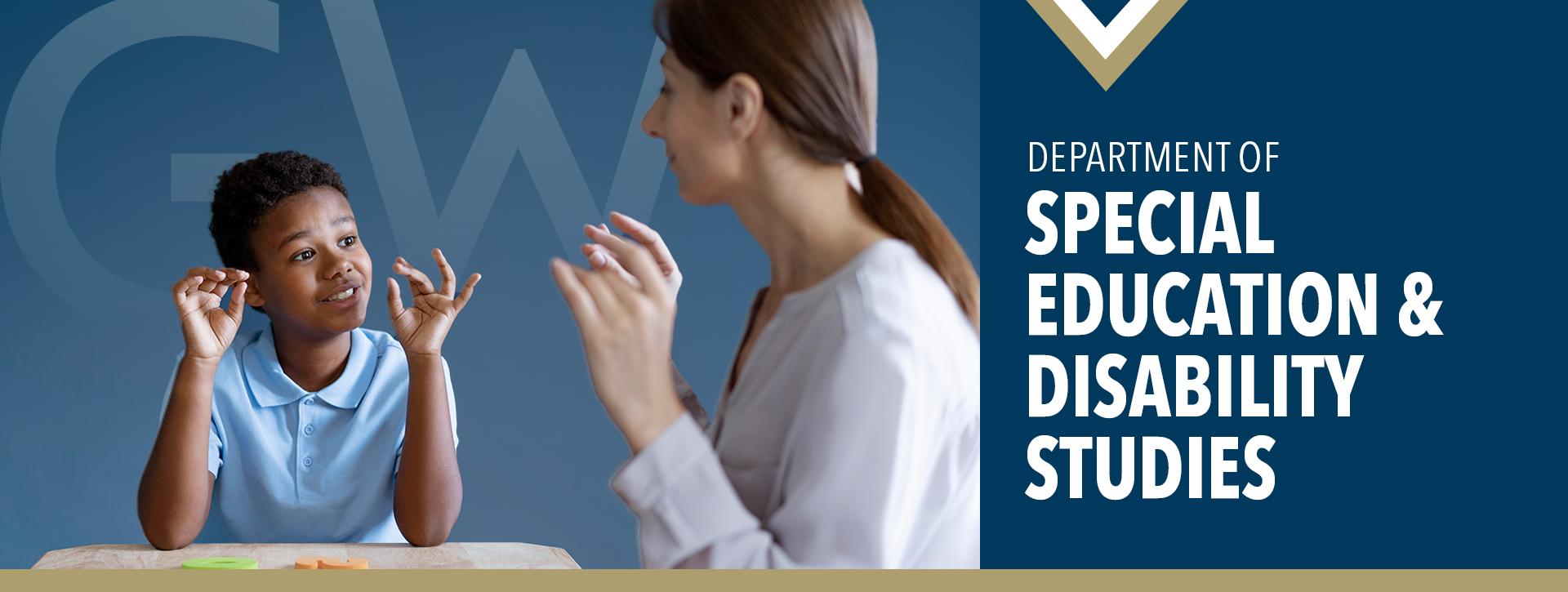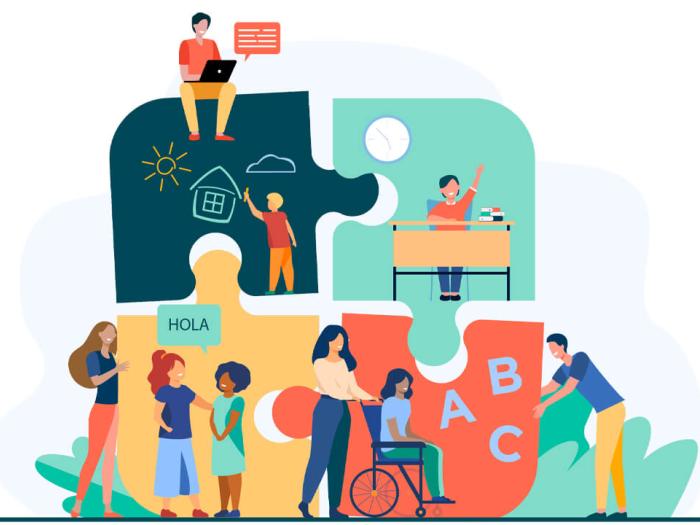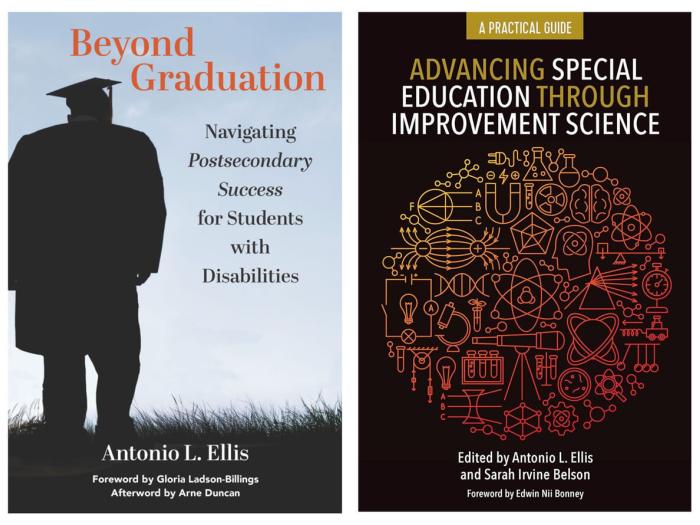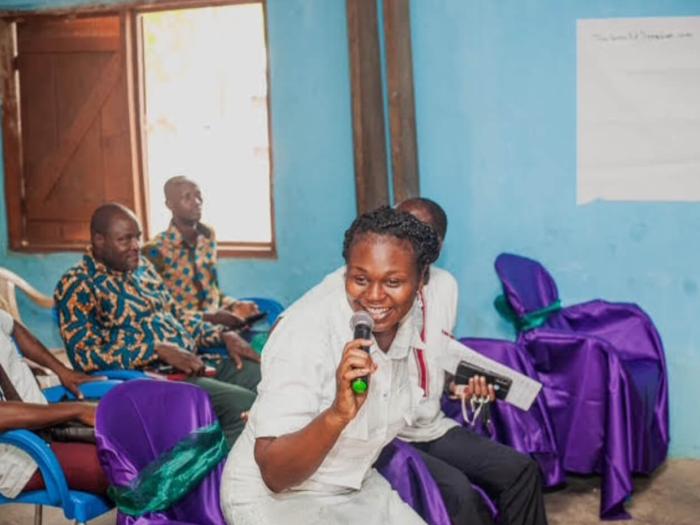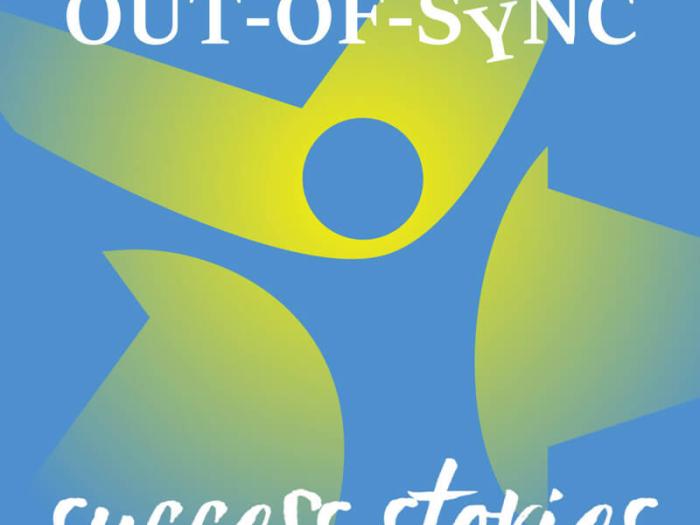Department of Special Education and Disability Studies
Change Lives, Starting With Yours
The Graduate School of Education and Human Development (GSEHD) within the George Washington University prepares scholar-leaders to work within clinical settings, schools, and communities to meet the diverse needs of those with disabilities. Our variety of specialized programs span all developmental stages, from birth through young adult, and promote inclusion and equity for all learners though an individualized teaching and learning approach. Develop skills to infuse social justice ethics, culturally responsive practices, strength-based strategies and disability rights lenses into your classroom or clinical setting.
GSEHD's high touch programs allow each graduate student to benefit from high quality mentorship and gain the knowledge and skills they need to make a difference for people with disabilities.
Find the Program that Matches Your Career Goals
Master's Degrees
- Special Education (Non-Licensure)
- Online -
With no fieldwork requirements, this 30-credit program is ideal for those interested in special education who already hold a teaching license or are pursuing careers that don’t require one.
Not Currently Accepting Applications
- Special Education (Licensure)
- Online -
Develop knowledge and skills to infuse social justice ethics, culturally responsive practices, strength-based strategies, and disability rights lenses into your teaching and educational experiences.
Not Currently Accepting Applications
- Early Childhood Special Education*
Prepare to address the learning and developmental needs of young children (ages 3-8) with or at-risk for disabilities.
Not Currently Accepting Applications
- Interdisciplinary Secondary Transition Services
- Online -
Develop expertise in the design, implementation, and continuous improvement of transition planning and programming to empower students and young adults with disabilities in successfully transitioning to postsecondary opportunities.
Not Currently Accepting Applications
- Special Education for Children with Emotional and Behavioral Disabilities*
This program is designed to train educators who are able to address a full continuum of needs of culturally and linguistically diverse exceptional students. Graduates are eligible for teacher licensure in Special Education - Emotional Disturbance (ED), Learning Disability (LD), and Intellectual Disabilities (ID).
Not Currently Accepting Applications
Doctoral/Specialist Degrees
- EdD in Special Education
Students study structural and functional changes in the brain, examine cognitive processing, and consider the implications of those findings for teaching, learning, and educational policy. Graduates have an impact through leadership in academic settings, research communities, policy institutions, and advocacy organizations.
- EdS in Special Education Leadership
Combine licensure coursework in educational leadership and administration with knowledge and skills to support students with disabilities in PreK-12 settings.
Graduate Certificates
- Autism Spectrum
Provide focused instruction and intense individualized interventions and evaluate, select, and implement evidence-based practices to support children with autism and other neurodevelopmental disorders.
Not Currently Accepting Applications
- Secondary Transition Leadership
- Online -
This certificate focuses on social justice as you learn to design and implement strategies to help ensure the success of youth as they transition to adult life.
Not Currently Accepting Applications
- Social, Emotional, and Behavioral Health
- Online -
Learn to replace outdated discipline with inclusive, research-based strategies that support whole-child development and foster positive, culturally responsive learning environments.
Not Currently Accepting Applications
- The Science of Reading
- Online -
Develop the pedagogical expertise to deliver effective, evidence-based reading instruction rooted in the science of how students learn to read.
Not Currently Accepting Applications
The GW advantage
Access Washington, D.C.
Take advantage of our unique location in the heart of our nation’s capital, with access to opportunities in government and private organizations, as well as urban and suburban public, charter, and private schools.
Unmatched Outcomes
With its reputation of excellence, you will join, learn from, and support a cohort of brilliant peers who are highly sought after for post-program employment.
Gain Credentials
GSEHD prepares you for licensure in supporting children with learning, emotional, or behavioral challenges through various stages of development.
You May Be Eligible
Learn more about benefits that may apply to you, depending on the program you choose >
No Application Fees
GRE is Not Required
Scholarships Available
Let's Connect
- Department Faculty & Staff

 Dr. Maxine Freund
Dr. Maxine FreundAssociate Dean for Research and External Relations; Director of Accreditation; Professor, Special Education and Disability Studies
(202) 994-1547

 Dr. Elisabeth Kutscher
Dr. Elisabeth KutscherAssistant Professor, Special Education and Disability Studies

 Dr. Beth Tuckwiller
Dr. Beth TuckwillerDepartment Chair and Associate Professor, Special Education and Disability Studies
(202) 994-9860
- Admissions Coach
- Image

Cristen Jones
Assistant Director of Admissions
teachinfo gwu [dot] edu (teachinfo[at]gwu[dot]edu) | 202-994-0012
gwu [dot] edu (teachinfo[at]gwu[dot]edu) | 202-994-0012


